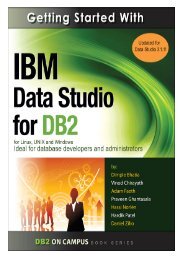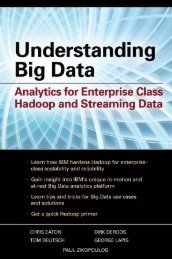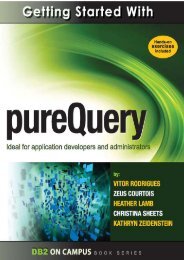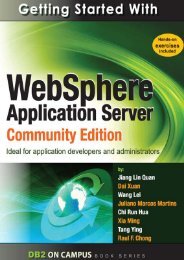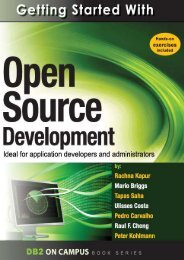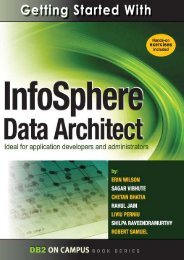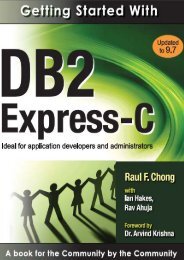Managing Computers in Large Organizations
Create successful ePaper yourself
Turn your PDF publications into a flip-book with our unique Google optimized e-Paper software.
<strong>Manag<strong>in</strong>g</strong> Microcomputers <strong>in</strong> <strong>Large</strong> <strong>Organizations</strong><br />
http://www.nap.edu/catalog/167.html<br />
About this PDF file: This new digital representation of the orig<strong>in</strong>al work has been recomposed from XML files created from the orig<strong>in</strong>al paper book, not from the<br />
orig<strong>in</strong>al typesett<strong>in</strong>g files. Page breaks are true to the orig<strong>in</strong>al; l<strong>in</strong>e lengths, word breaks, head<strong>in</strong>g styles, and other typesett<strong>in</strong>g-specific formatt<strong>in</strong>g, however, cannot be<br />
reta<strong>in</strong>ed, and some typographic errors may have been accidentally <strong>in</strong>serted. Please use the pr<strong>in</strong>t version of this publication as the authoritative version for attribution.<br />
MANAGING MICROCOMPUTERS AND END-USER COMPUTING SOME CRITICAL<br />
ISSUES<br />
If my thesis about distributed creativity is correct, end-user comput<strong>in</strong>g,<br />
with micros where justified, is appropriate. Through a good end-user support<br />
group, sometimes called an <strong>in</strong>formation center, local managers can receive<br />
<strong>in</strong>formation support of all types, not only with hardware but with software and<br />
tra<strong>in</strong><strong>in</strong>g. However, some controls should be attached to these support efforts:<br />
• Use passwords properly. Change them frequently. Tie them to people and<br />
term<strong>in</strong>als, not groups.<br />
• Control the use of floppy disks and prevent unauthorized removal of data.<br />
• Isolate the user from the operat<strong>in</strong>g system with a friendly menu and<br />
command-driven front end.<br />
• Don't let end users update ma<strong>in</strong> files except through batch processes with<br />
good edits and controls or through on-l<strong>in</strong>e systems with formal edit, audit,<br />
and recovery procedures.<br />
• Decide between a throw-away or a share policy for user-developed,<br />
decision-aid<strong>in</strong>g programs. If shar<strong>in</strong>g is chosen, build the <strong>in</strong>frastructure to<br />
support it.<br />
• Provide good user tra<strong>in</strong><strong>in</strong>g. Users tend to follow the <strong>in</strong>structions given, and<br />
good tra<strong>in</strong><strong>in</strong>g can help reduce waste, correct <strong>in</strong>efficient rout<strong>in</strong>es, and<br />
promote data security and <strong>in</strong>tegrity.<br />
• Use a real money charge-back system and let the end users' manager worry<br />
about waste. Allocate disk space carefully—it is relatively expensive.<br />
Limit<strong>in</strong>g disk space constra<strong>in</strong>s the extent of data and thus <strong>in</strong>directly<br />
controls how large and complex the user's systems can be.<br />
Distributed creativity is an important national asset. It can help the<br />
revitalization of <strong>in</strong>dustry and the recovery of the U.S. position <strong>in</strong> <strong>in</strong>ternational<br />
competition. End-user comput<strong>in</strong>g, supported by micros or term<strong>in</strong>als and by a<br />
good support staff, promotes distributed creativity. Microcomputers <strong>in</strong><br />
particular can encourage <strong>in</strong>novation and good decision mak<strong>in</strong>g at all levels of<br />
the organization. No longer just an executive gadget or a local data processor,<br />
micros have become, I believe, an important l<strong>in</strong>k <strong>in</strong> rebuild<strong>in</strong>g our national<br />
strength.<br />
92<br />
Copyright © National Academy of Sciences. All rights reserved.




